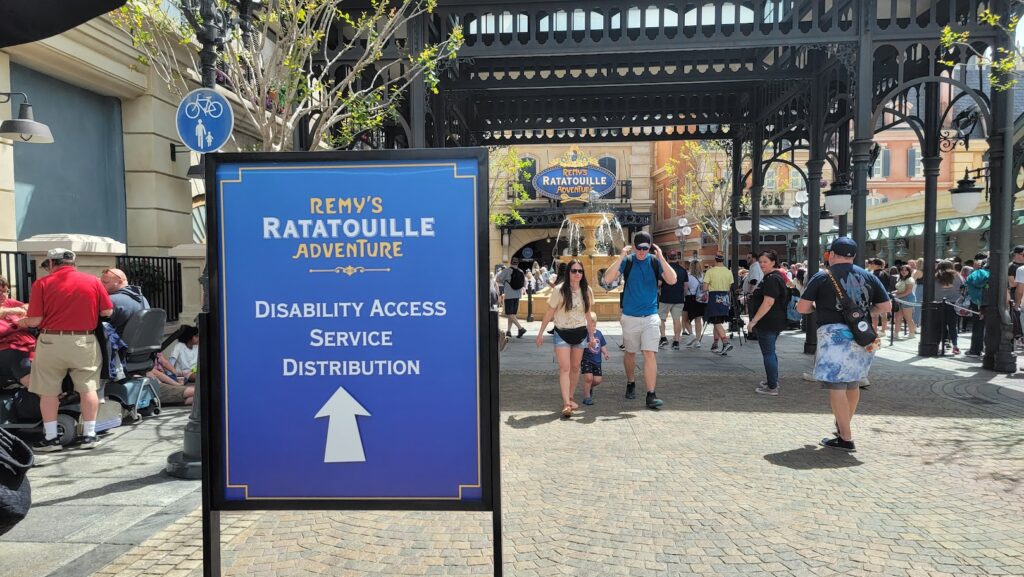
Allegedly Disney’s New Disability Access Service (DAS) is Worse Than We Think. Oh Boy, this is going to be worse than we think, this may end up being worse than ‘New Coke’ when it comes to goodwill. Disney will have no one to blame but themselves. We won’t have anyone to blame but the cheaters who took advantage of the system that was in place, oh and we can blame Disney also.
Context, New Coke was released in 1985 by the Coca-Cola Company and became the biggest marketing blunder in history. So bad, in fact, that only 3 months later Coca-Cola had to pull New Coke off the shelves and bring back the original formula three months later.
Rumors have swirled for a few months since Disney Parks changed their Disability Access Service language on the Disneyland and Walt Disney World websites. Before we get into what we have heard and how bad it is, let us see what the new language is.
“Learn how this service supports Guests who, due to a developmental disability like autism or similar, are unable to wait in a conventional queue for an extended period of time. Plus, find details about the registration process and usage guidelines.” It goes on to say “DAS is intended to accommodate a small percentage of Guests who, due to a developmental disability like autism or similar, are unable to wait in a conventional queue for an extended period of time.
DAS doesn’t provide immediate access to experiences but rather allows Guests to request a return time for a specific experience that is comparable to the current standby wait. The Guest who is requesting to use DAS must be present during registration and experience the attraction when redeeming a DAS return time at Walt Disney World theme parks.”
Remember these new rules go into place starting May 20th, 2024 at Walt Disney World. Disneyland’s new rule changes go into effect on June 18th, 2024.
What we are hearing is, and this is subject to change, but we have a good idea:

Who qualifies for DAS under the new rules – Those on the Autistic Spectrum (and that is it!). Autism is the ONLY qualifier. Even then, some aspects of Autism and Neurodivergence will be asked how they are accommodated outside of the parks to see if they could qualify. Some may not qualify at all. Those who qualify must fall under a new measuring stick of ‘would that person leave the line and not come back’.
Who does not qualify – PTSD, and this is messed up, even those who are combat veterans or have served in the military. ADHD, Social Anxiety, and any other cognitive or mental health disability. Physical Disabilities have not changed, like those needing a mobility scooter, wheelchair, crutches or the sort. Other Physical Disabilities include IBS, Crohn’s Disease, and Diabetes. Oh, and if you have cancer!
What Disney is suggesting as of right now for those who do NOT qualify. Rider Swap or Return to Queue. They have not gone into great detail about how these will work, but they are training the DAS team now.
We do not have any more information than this. Every question you have, we have also.
Check out our past article about the DAS changes
Goodwill on the Line?
Disney prides itself on creating magical experiences for all. A program like DAS is crucial for guests with disabilities to fully enjoy the parks. These changes, if true, risk alienating a large portion of the disabled community who previously relied on DAS.
What Can We Do?
The information is still emerging, so a wait-and-see approach is wise. However, if the rumors hold true, voicing our concerns directly to Disney is essential. Their website and social media channels are good avenues for expressing our opinions. #disneyparks #waltdisneyworld #disneyland @disneyparks @waltdisneyworld @disneyland those are just a start. I can tell you if these are truly the new rules, and we have it under good authority that they will be, we will be blasting all the social tags we know of and will make sure everyone in the community does also.
Looking Forward
Disney has a long history of catering to guests with disabilities. Let’s hope these changes stem from a desire to improve the DAS program, not to restrict access. Open communication and a focus on true inclusivity are key to maintaining the magic for everyone.



